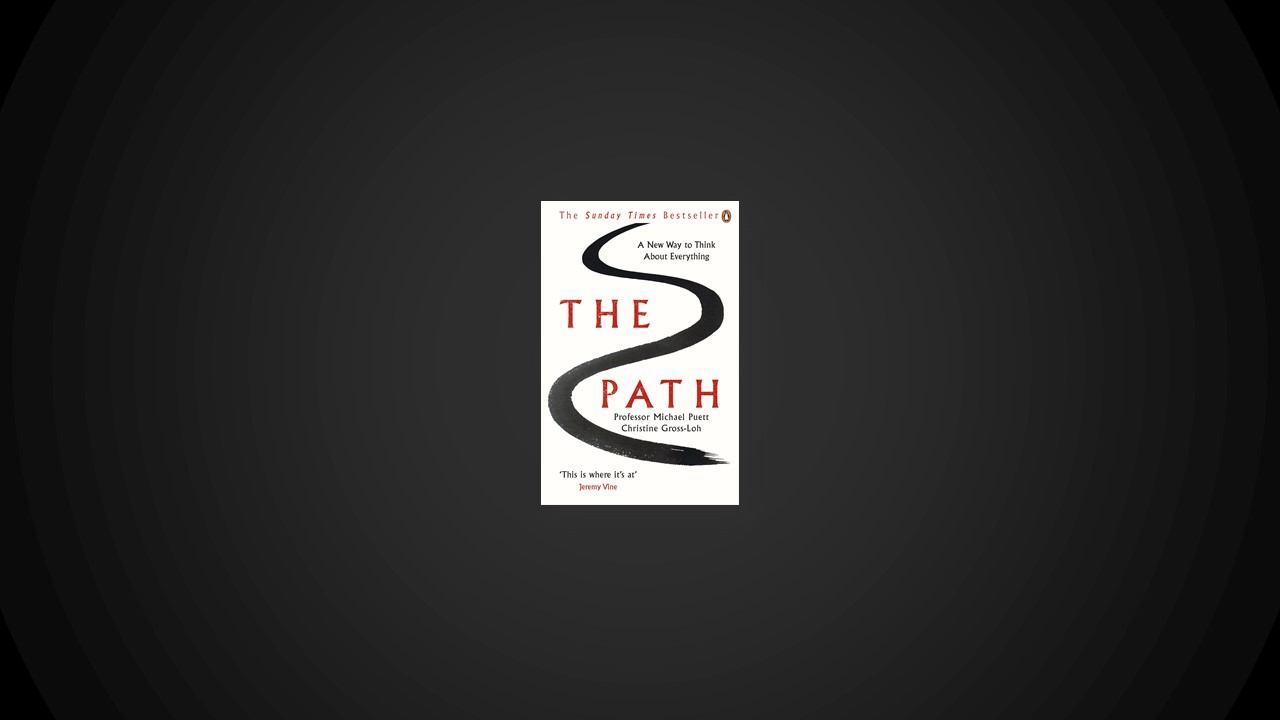On Relationships: Confucius and As-If Rituals
We tend to believe that to change the world, we have to think big. Confucius wouldn’t dispute this, but he would likely also say, Don’t ignore the small. Don’t forget the “pleases” and “thank yous.” Change doesn’t happen until people alter their behavior, and they don’t alter their behavior unless they start with the small.
Confucius taught that we can cultivate goodness only through rituals. Yet it is only once we conduct our lives with goodness that we gain a sense of when to employ rituals and how to alter them. This may sound circular, and it is. This very circularity is part of the profundity of his thought. There is no ethical or moral framework that transcends context and the complexity of human life. All we have is the messy world within which to work and better ourselves. These ordinary as-if rituals are the means by which we imagine new realities and over time construct new worlds. Our lives begin in the everyday and stay in the everyday. Only in the everyday can we begin to create truly great worlds.
On Decisions: Mencius and the Capricious World
Despite all that you do to keep your life open and to stay responsive, things don’t always turn out well. You can apply for a job, do the very best you can during interviews, and be rejected in the last round. You can pour your heart into a relationship, only to be dumped. You can arrange to take off six months from work in order to travel, only to learn that your father is critically ill and that you need to cancel your trip to spend time with him in his final months. This is the sort of world that Mencius envisioned, very different from that of the Mohists.
In Mencius’s world, ming prevails. Ming has been translated variously as Heaven’s commands, fate, or destiny. But for Mencius, it was a term for the contingency of life: the events, good and bad, that happen outside our control. Ming explains that windfalls (such as a job opening) and tragedies (such as a death) happen no matter what we have planned or intended.
We know ming: Talented people get fired and can’t find another job. The person we love decides, inexplicably, to leave us. Good friends die suddenly, leaving behind young, grieving children. Confucius’s favorite disciple died tragically young. Mencius, you’ll recall, suffered a major personal crisis late in life, when the ruler of Qi took advantage of him. He struggled to accept the fact that we cannot control the events that affect us deeply. The best plans, the most carefully made decisions, never guarantee against arbitrary, sometimes tragic, events.
On Influence: Laozi and Generating Worlds
Rather than think that power comes from strength prevailing over strength, we can understand that true power comes from understanding the connections between disparate things, situations, and people. All of this comes from an understanding of what the Laozi calls the Dao, or “the Way.” The sapling prevails because it is close to the Way.
But a sapling, in the end, is just a sapling. It sways with the wind and grows without consciousness. We human beings can do far more. We are capable of not just understanding connections but also making new ones to generate entirely new realities and new worlds. Being the architects of these worlds is how we become powerful
The Laozi is not telling us that we should simply follow some harmonious pattern that is somewhere “out there” and that we could better reach by going on a pilgrimage or returning to the ways of primitive antiquity. It is not telling us that we should strive to be accepting and tranquil. It teaches a very different notion: that the Way is something we can actively generate ourselves, in the here and now. We each have the potential to become effective and influential in transforming the worlds in which we live. We can re-create the Way.
For Laozi, the Way is the original, ineffable, undifferentiated state that precedes everything. It is:
a thing inchoate and complete,
born before Heaven and earth.
It is that from which everything in the cosmos emerges and to which everything in the cosmos returns
On Vitality: The Inward Training and Being like a Spirit
Charismatic people are not born with transformative abilities; they are born with the potential to be so. When that potential is cultivated, the charismatic person becomes capable of drawing others to her through the force of her energy. When we are with someone who is energized in a positive, exciting way—someone who fills a room with her presence and who has a zest for life—we are drawn to her. Her energy is contagious. That charisma comes from spirit. She is charismatic because she is so alive and resonant with those around her. Her refined qi elicits the best of others and draws out their own spirits.
But while the Inward Training is almost entirely about cultivation, it is not about self-cultivation. A charismatic person is not charismatic because she has a uniquely captivating personality all her own. She is not cultivating herself. She is cultivating energy; she is cultivating qi. She is charismatic and full of life because the highly refined qi within her is identical to the highly refined qi that exists around her. It’s by being so resonant with that qi that she becomes able to alter things.
We too can form webs of connection and relationships with people around us by cultivating spirit. People around us can become drawn toward us and enriched by us because of how we energize them. As we become known for being this sort of a person, our relationships and connections grow. We further develop the ability to respond to people at their best. If we encounter someone burning with jealousy or anger, or someone burdened with sadness or anxiety, we become able to respond not to those energies but to the person’s other facets, bringing out his or her healthier energies. And as our charisma grows, like a spirit we become able to pull things together, harmonize things, and shift all sorts of situations. The Inward Training would say that this highly energized connection with absolutely everything is the Way.
On Humanity: Xunzi and Putting Pattern on the World
We often hear that self-acceptance is the key to personal growth: Love who you are. Be at peace with the person you are in this moment. This leads us to accept not just ourselves but also our lives; in doing so, we gain some measure of serenity.
But one of our philosophers would have been concerned about this level of self-acceptance. Xunzi, a Confucian scholar born in 310 BC, didn’t believe we should accept ourselves as we are. Rather, he argued that we should never complacently accept what we think is natural to us.
For Xunzi, the notion that “natural is better” was dangerous. And he wasn’t referring just to human nature. He was also referring to our assumption about the world at large.
He thought that any loyalty to nature, whether it is our own human nature or the nature out there, any acceptance of the world “as it is,” was inherently limiting and destructive. He asks us to consider how we would live differently if we understood just how much the world is already our creation. If we have made the world that we experience, then we should not be asking ourselves how to find our proper place within it. We should be asking whether we have structured it well.
The Age of Possibility
In this fractured and fragmented world, it’s up to us to generate order. We are the ones who construct and give pattern to the world—not by getting rid of the unwieldy human emotions, the messy stuff that is us, but by beginning right there. And we do this through daily self-cultivation: working through our rituals to improve the way we relate to those around us; cultivating energies in our bodies so that we can live with more vitality; training our hearts and minds to work through daily decisions in a powerfully different way; and resisting our tendency to cut ourselves off from experience, so that we become constantly receptive to new things.
The process of building a better world never ends because our attempts to build better relationships are never finished. But as we learn how to better our relationships, we will learn how to alter situations and thereby create infinite numbers of new worlds. We will open ourselves up to the possibilities in these philosophical ideas that point the way to a good life.
If the world is fragmented, then it gives us every opportunity to construct things anew. It begins with the smallest things in our daily lives, from which we change everything. If we begin there, then everything is up to us.


